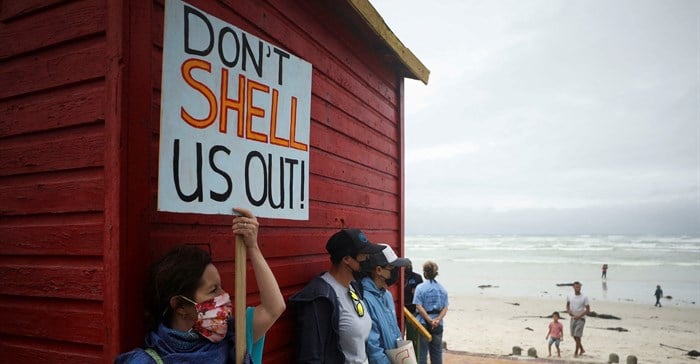






"As a result of this review, Shell has decided to reshape the downstream portfolio and intends to divest our shareholding in SDSA ... this decision was not taken lightly," a Shell statement said. It did not specify when the decision took effect.
Shell Downstream SA (SDSA) was formed after Shell South Africa and black empowerment company, Thebe Investment Corporation, agreed a decade ago to merge Shell South Africa Marketing and Shell South Refining businesses. Thebe held a 28% equity stake.
Shell, which has been present in South Africa for more than century, is still exploring the country's offshore, incurring opposition from environmental campaigners who have launched court action.
During the divestment process, Shell said on Monday it would work to preserve SDSA's operating capabilities and maintain its brand presence.
A Thebe spokesperson was not immediately available for comment.
One of SDSA's main assets and South Africa's largest refinery, Sapref, in the east coast port city of Durban has not been operating since 2022 when Shell and its refinery joint venture partner, BP, decided on a spending freeze and halt to the refinery's operations.
Flooding along the coast that killed nearly 400 people that same year severely damaged the plant, which at that stage provided around 35% of South Africa's refining capacity.
South Africa's Central Energy Fund said two years ago it was interested in Sapref, which has a nameplate capacity of 180,000 barrels per day, as it seeks to overcome energy security concerns.
On Monday, an energy official, speaking on condition of anonymity, said CEF had signed a non-disclosure agreement with the parties involved and therefore could not comment.
South Africa is a net importer of refined petroleum products, a challenge exacerbated since the closure of Sapref and the country's second largest refinery Enref, also in Durban.

Reuters, the news and media division of Thomson Reuters, is the world's largest multimedia news provider, reaching billions of people worldwide every day.
Go to: https://www.reuters.com/